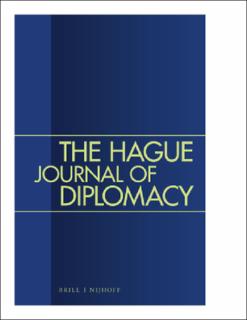Everyday Migrant Accompaniment: Humanitarian Border Diplomacy
Journal article, Peer reviewed
Permanent lenke
https://hdl.handle.net/11250/2981888Utgivelsesdato
2022-02-01Metadata
Vis full innførselSamlinger
- Publications [1488]
Sammendrag
This article advances the notion of humanitarian border diplomacy, contributing to current academic discussions on humanitarian diplomacy and on the practice-theory nexus by conceptualising NGO s’ migrant accompaniment at borders as a form of everyday humanitarian diplomacy. The contention is that humanitarian diplomacy is similar to other diplomatic practices. Starting by rethinking humanitarian diplomacy, it discusses the emergence of humanitarian border diplomacy as a key component of everyday migrant accompaniment. Humanitarian border diplomacy focuses on advancing migrants’ rights, seeking to make helpful, empowering and transformational interventions in an attempt to resist and change the contemporary global governance of migration. The article presents the everyday diplomatic practices of the Servicio Jesuita a Migrantes in Melilla, on Spain’s southern border, as an example of humanitarian border diplomacy. At the border, as an alternative space for resistance, difference and otherness, the need for diplomatic culture as the symbolic mediation of estrangement is revealed.
This article is part of the project “Humanitarian Diplomacy: Assessing Policies, Practices and Impact of New Forms of Humanitarian Action and Foreign Policy” funded by the Research Council of Norway (project number 286859) and led by Antonio De Lauri at the Chr. Michelsen Institute.
Serie
The Hague Journal of DiplomacyThe Hague Journal of Diplomacy
